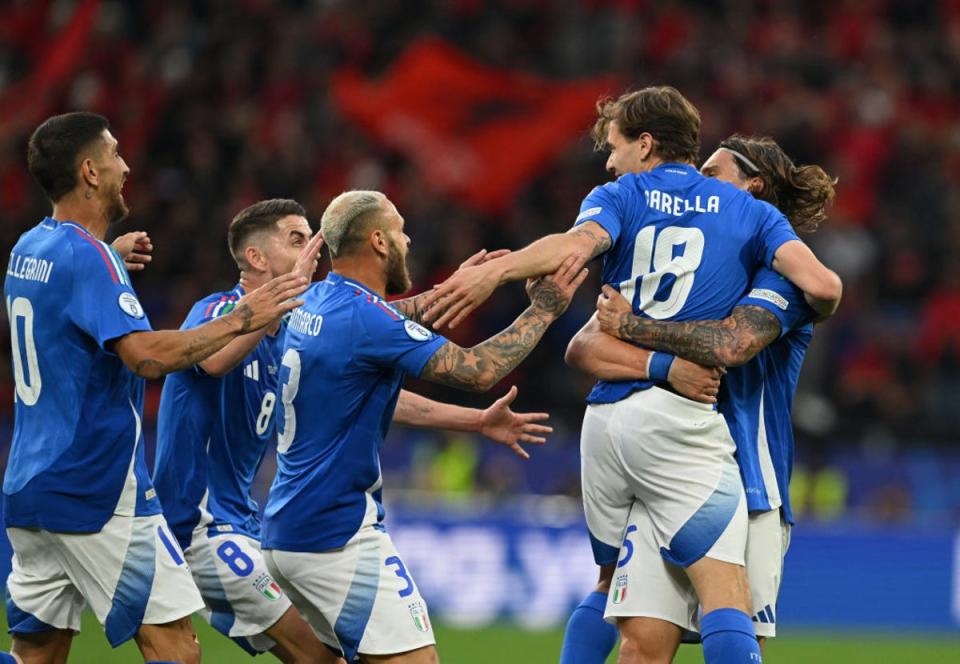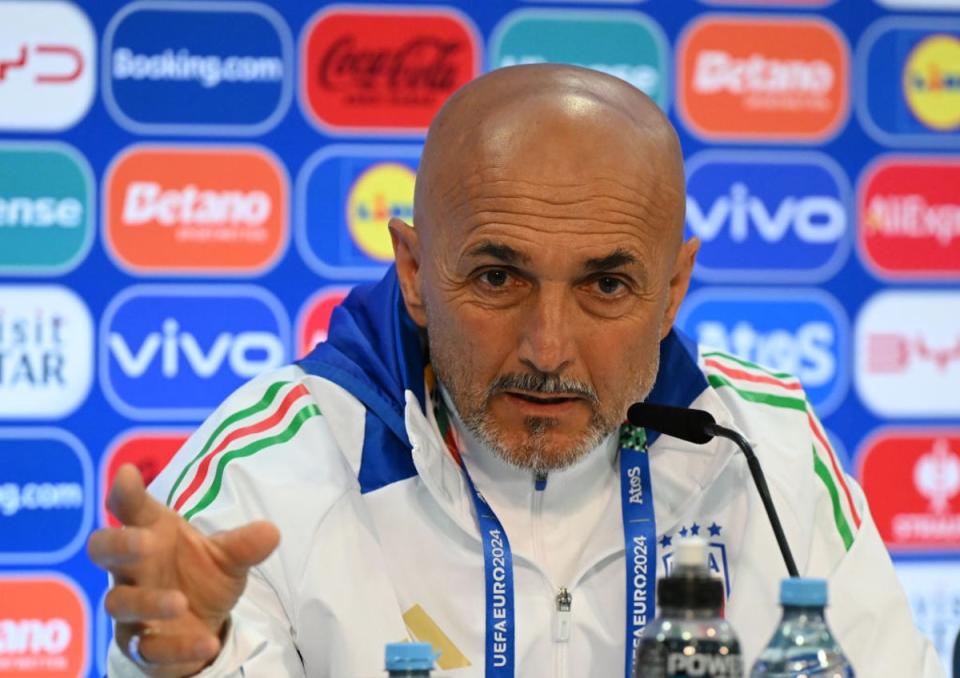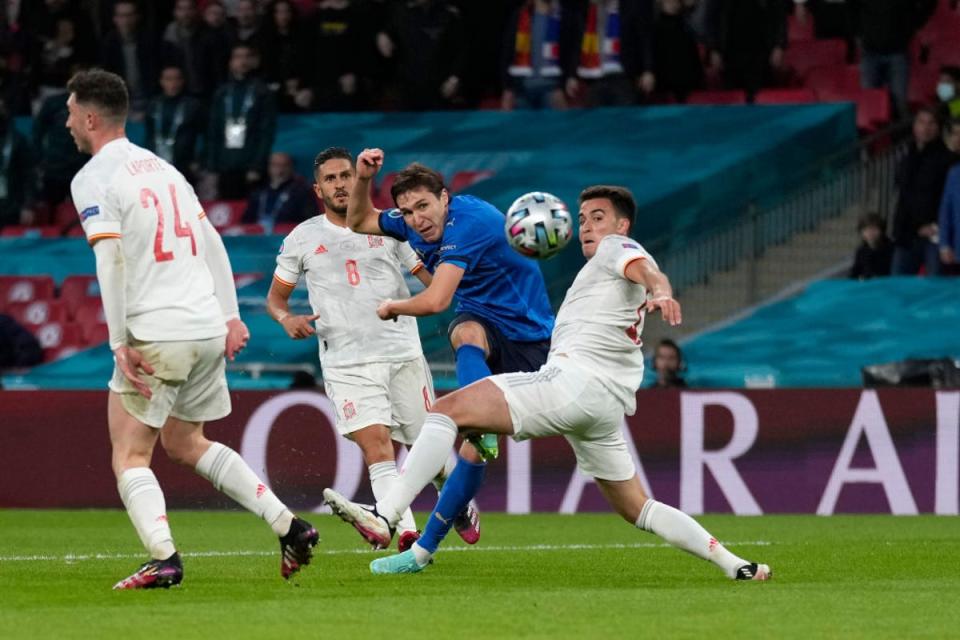Spain and Italy’s reverse culture clash brings new chapter to classic Euros rivalry

As Luciano Spalletti prepares for the biggest challenge of his first year in charge of Italy, the 65-year-old is relishing the occasion of facing the highest exponents of his philosophy in Spain. The grandest rivalry in European Championship history will take a new twist at Euro 2024, as Gelsenkirchen stages the first heavyweight clash of a tournament that has so far been defined by the unfancied nations seizing their opportunity. Spalletti knows his Italy side remain a work in progress if they are to reach the levels of possession once set by Spain, who themselves represent something different from what has come before.
New faces are attempting to lead respective revolutions. Spain’s next generation is being moulded by Luis de la Fuente’s pragmatism. An opening victory over Croatia was notable for the fact that they had less possession than their opponents, bringing a run of 136 competitive matches since the Euro 2008 final against Germany to an end. Led by captain Alvaro Morata and the 16-year-old Lamine Yamal, who can further add to his blossoming reputation on the biggest stage against Italy, Spain’s greatest weapon is now the counter-attack, rather than trying to pass teams to death.
Spain attempted just 455 passes during the 3-0 win over Croatia, less than half of their total from the existential crisis of a defeat to Morocco in the last 16 in of the 2022 World Cup. If it showed how much has already changed since the days of Luis Enrique, with Serbia, Switzerland and Austria all attempting more passes than Spain in their opening matches, Italy’s total was just as instructive. By contrast, no team attempted more passes than Italy in the Azzurri’s opening win over Albania in Dortmund.
But Spalletti, a perfectionist, demanded more. He always does. “What matters is winning? No, what matters is playing good football,” Spalletti said after the 2-1 victory over Albania, a night that saw the Azzurri recover from the fastest goal in European Championship history. “In order to be Italy’s head coach, or in order for us, we only have one route to do so – that’s via good football,” he said. “If you don’t play good football, there are teams better than us. If you go and play with the same things the better teams have, they will win.”

Remarkably, this is the fifth European Championship in a row where they have met. Their clashes often come to assume greater importance on reflection. Spain’s victory over Italy in the quarter-finals of Euro 2008 proved a seminal moment for a golden generation, ending the curse of the penalty shootout that had previously loomed over a nation. From there, as world champions, Spain met Italy twice at Euro 2012 and their most significant meeting came in the final. Spain’s 4-0 thrashing of the Azzurri was the crowning moment of their era of dominance as they defended their European crown.
But Italy found a way to frustrate Spain in other ways, forming some of the first dents in their collective belief. Four years on, Italy had revenge. Their 2-0 win in the last 16 of Euro 2016 came from a masterclass of organisation from Antonio Conte. Another tournament on, at Euro 2020, Italy and Spain battled in a high-wire tactical contest before the Azzurri won on penalties to reach the Wembley final. When it came to winning and winning ugly, Italy displayed what was previously always evident against Spain, that they understood how to do it and their opponents did not.

Now for the new era. In Gelsenkirchen, it is Italy who are likely to have more of the ball and it is Spain who are preparing to frustrate with their work off it, a role reversal from previous meetings on this stage. "We are prepared to get muddy, to dig deep in a quarry and for a day in the office. Ready for everything," De la Fuente said. “We know what kind of football they play and how competitive they are, so we won’t be surprised. I expect a strong, aggressive Italy who will try to control possession.”
Spalletti will demand that too, just as he expects Spain to present the toughest test of his early work with Italy. How will Spalletti’s side respond when Spain press them high up the pitch, closing the angles and squeezing the play? If anything, this is what Spalletti’s pursuit of perfection has been building towards. Just as one misplaced step could see them cut apart by Spain, the right three or four passes could put Italy through. Perhaps Italy and Spain aren’t what they once were, but there is plenty of intrigue to match the heavyweight names on show.

 Yahoo Sport
Yahoo Sport 



































































